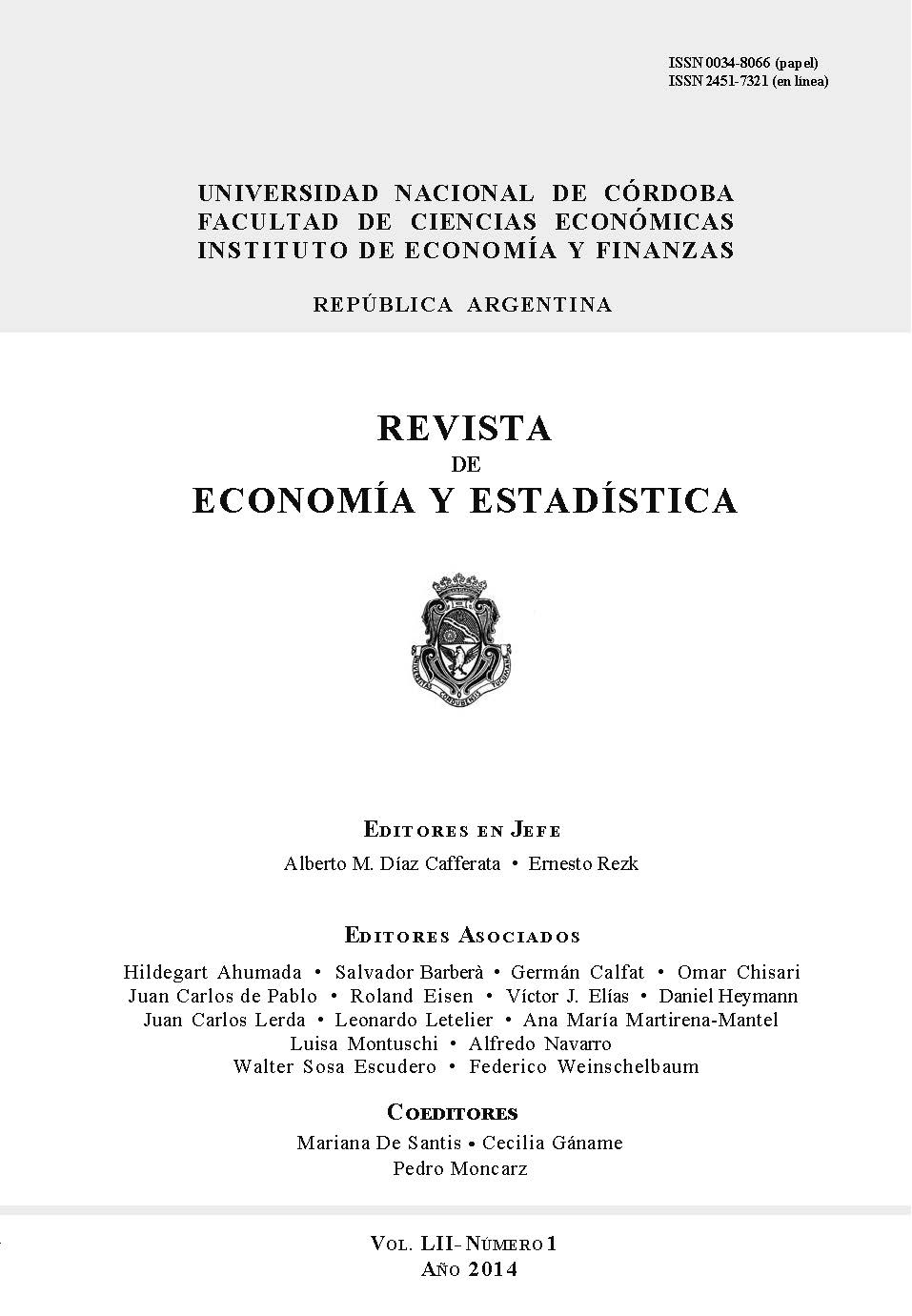Endogenous Protection within a framework of monopolistic competition à la Dixit–Stiglitz
DOI:
https://doi.org/10.55444/2451.7321.2014.v52.n1.14937Keywords:
endogenous trade policy, monopolistic competition, trade, economic geographyAbstract
The author studies the determination of trade policy by considering an imperfectly competitive market. The model adopts the political process developed by Grossman and Helpman (1994), but it also takes into account a different economic structure, which is based on the Footloose Capital model. Two new appealing insights come from the consideration of monopolistic competition. Firstly, in this setting, the interest group seems to be more worried to persuade the government to set a high tariff when it can charge a low mark-up. Secondly, the initial distribution of industry might also influence the structure of protection in one economy.
Downloads
Downloads
Published
Issue
Section
License
Copyright (c) 2014 María Cecilia Gáname

This work is licensed under a Creative Commons Attribution-NonCommercial-NoDerivatives 4.0 International License.
Authors who have publications with this journal agree to the following terms:
Authors retain their copyright and grant the journal the right of first publication of their work, which is simultaneously subject to the Creative Commons Attribution-NonCommercial-NoDerivatives 4.0 International License that allows third parties to share the work provided that its author and first publication in this journal are indicated.
Authors may adopt other non-exclusive licensing arrangements for distribution of the published version of the work (e.g. depositing it in an institutional telematic archive or publishing it in a monographic volume) as long as the initial publication in this journal is indicated.
Authors are allowed and encouraged to disseminate their work via the Internet (e.g. in institutional telematic archives or on their website) before and during the submission process, which can lead to interesting exchanges and increase citations of the published work. (See The Open Access Effect)














